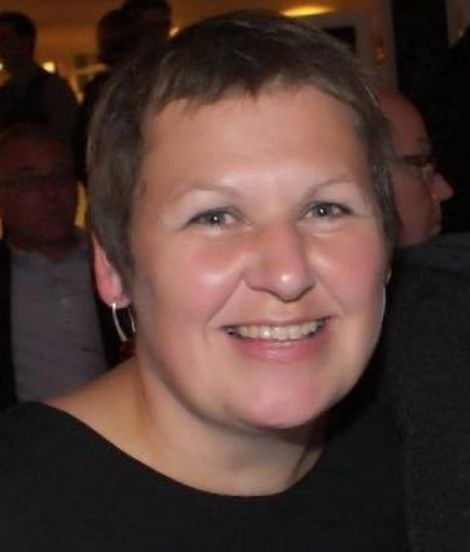News / Local woman was victim of £3,000 bank scam
A SCHOOL worker from Tingwall has warned locals to be on their guard when receiving phone calls purporting to be from their bank after she was scammed out of £3,000.
While the money was reinstated by her bank just days later, Rosalynn Fraser said the incident was “absolutely dreadful” and left her feeling shocked.
Rosalynn received a call from a man claiming to be from the Bank of Scotland last month querying a monthly direct debit payment supposedly set up through her account.
She is adamant she never gave any sensitive details relating to her bank account or any personal information.
However, Rosalynn did give a second caller a six-digit telephone banking security number which had been sent to her in the post by the Bank of Scotland following the first call.
“I got a call from a man called Ryan claiming to be from the Bank of Scotland. They were querying a request for a direct debit I supposedly had paperwork sent to me about it, but I hadn’t received anything. It was for about £7 from a place called Domestic and General,” she said.
“He started asking some questions about security. As far as I know I told him nothing. I remember him asking for my date of birth, but I was very wary and didn’t tell him. He also asked how long we’d lived in the house.
“In the end I said I’d just go into the local branch to sort it out, and he said he understood. He was very believable and very convincing.”
The man then asked Rosalynn if she had a PIN for telephone banking, which would ensure she wouldn’t need to be asked about personal details in the future. She said she didn’t have one to hand and agreed to have a number sent to her in the post.
Become a member of Shetland News
A couple of days later she received a genuine text message from the Bank of Scotland confirming a PIN had been mailed to her.
After it arrived in the post, Rosalynn received a phone call from a woman claiming to be from the Bank of Scotland who asked for the number, which she gave out before becoming wary of providing more details.
“I told them the PIN number, but after a few things, I thought I’m not happy,” she said.
“I was asked to give the last three digits of my card, and I said I wouldn’t divulge that information. She asked for my date of birth, and I said no. I again said I would go into my local branch. However, with me working during the day, I didn’t go in.”
Rosalynn and her husband Graham sat down to watch television on Thursday night and she decided to check their joint current account on her mobile. To her shock, two payments of £2,200 and £800 had been sent to the Yorkshire Building Society.
Due to the amount of money, the first payment had been flagged up by the Bank of Scotland, but the recipient was able to confirm personal details when questioned.
“It’s one of those things that you think will never happen to you. We got straight on the phone to the Bank of Scotland, and they were really helpful,” she said.
“They said not to blame yourself because these folk are professional at this. You just feel very silly, because you think you must have said something. I did give out that PIN number, but at the same time it had come from the Bank of Scotland. You had no reason doubt it.
“The Bank of Scotland said the people had enough information to go into my bank account or telephone banking to request a new PIN. How they got that information, I have no idea.”
The couple quickly had the money put back into their account, but Rosalynn warned locals to remain cautious when receiving calls apparently from their bank.
“I’m pretty sensible, and you are very aware of this stuff going on, but they had been clever enough to get into my bank,” she said.
“I’d say just be very, very vigilant and if you’re not happy at all, don’t divulge any information and go into your branch or phone the bank yourself.”
Shetland Islands Council trading standards team leader David Marsh advised that people should always avoid giving sensitive personal or financial information over the phone.
“Instead, end the call and check that your phone line is clear by calling a friend or relative,” he said.
“You should then contact your bank using a number which you trust, such as one from your bank card or statement or from the bank’s website.”
A spokeswoman for Bank of Scotland said: “While telephone scams are well known, we urge customers to be on their guard if they receive unsolicited calls.
“No bank would ever ask a customer to disclose confidential information such as full PIN number. If you are in any doubt as to the veracity of the caller, terminate the call immediately and contact your local branch using a different phone.”
Marsh added that people can report scams online through www.actionfraud.police.uk or by phoning 0300 123 2040, while locals can also contact the SIC’s trading standards team.
Become a member of Shetland News
Shetland News is asking its many readers to consider paying for membership to get additional features and services: -
- Remove non-local ads;
- Bookmark posts to read later;
- Exclusive curated weekly newsletter;
- Hide membership messages;
- Comments open for discussion.
If you appreciate what we do and feel strongly about impartial local journalism, then please become a member of Shetland News by either making a single payment, or setting up a monthly, quarterly or yearly subscription.






























































